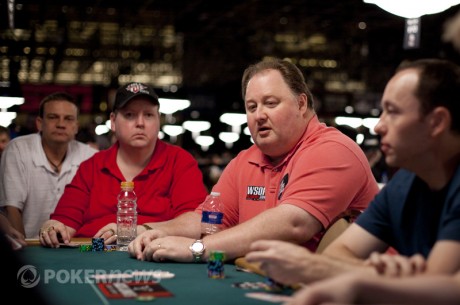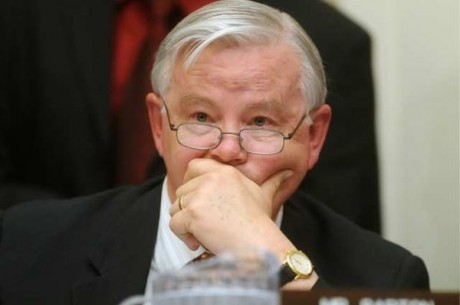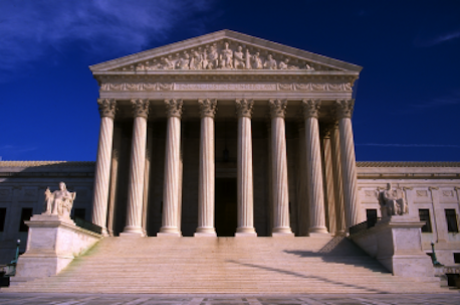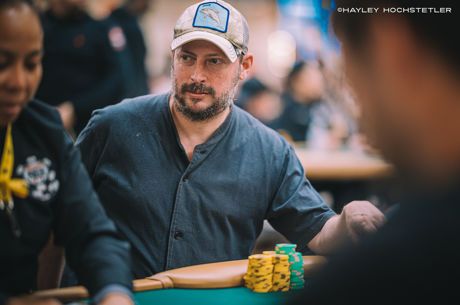Gary Johnson Could Be Who Poker Players Need in Office
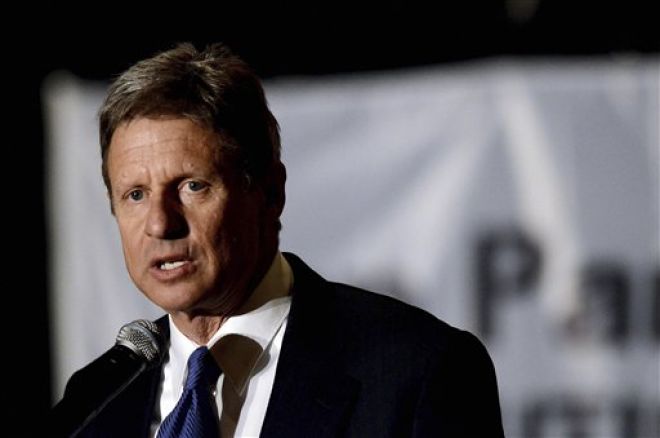
Online poker would have taken a much different path over the past five years had Gary Johnson been president.
First, he would have vetoed the SAFE Port Act of 2006, which was used as the vehicle to pass the Unlawful Internet Gambling Enforcement Act.
"Don't put attachments on it, that's baloney," Johnson, the Republican candidate for the 2012 presidential election and former governor of New Mexico, said in a phone interview. "I would have vetoed the bill and said to send it back clean, with no attachments."
If the UIGEA were put in place before Johnson took office, he would refuse to enforce it.
"Don't underestimate the power of being president or governor and being able to control rules and regulations," Johnson said. "Don't underestimate the ability of a president to turn your back on issues and laws that just aren't right."
If the moralists from his own party, like Sen. Jon Kyl (R-Ariz.) and Rep. Spencer Bachus (R-Ala.), played hardball and threatened to sue to force him to uphold the law, Johnson would make it known that he was only cracking down on offshore online poker because of these threats and would work with Congress to repeal the legislation.
"The difference between myself and [President] Obama, and this can be seen with the kind of transparency I had as governor, is that you wouldn't have to guess what my thoughts were regarding online poker," Johnson said.
Johnson made headlines in July when he put up a page on his campaign website courting the poker-player vote. He attended the beginning of the 2011 World Series of Poker Main Event, spending two hours greeting and talking to poker players from the Poker Players Alliance booth.
Johnson said he considers himself a lifelong poker player and a lover of other skill games like chess and backgammon. He's played mostly in private, home games, many times on ski trips. He's played in casinos a few times but never online.
It's not a love of poker that has Johnson embracing the plight of the poker player as much as a hatred of the government stepping in and denying people their passions, whatever they be, for no good reason. He scoffs at the idea that the government should be protecting people against themselves. "That should be the last thing concerning a politician," Johnson said.
There are many common-sense issues that politicians should support, probably even would support, if it wouldn't be controversial for them to do so. Johnson isn't afraid to step out and say what he knows is right, even if it will cost him votes from some demographics. He supports the legalization of drugs, particularly marijuana. He supports the legalization of prostitution. He realizes that the war on drugs hasn't worked, that prohibitions in general do not work. He believes the government would be better off regulating and profiting from these so-called vices rather than outlawing them.
"Millions of people in America are hurt by drug laws when they otherwise would be law-abiding citizens," Johnson said. "It's never going to be legal to smoke pot, become impaired, go out driving and put others in harms way. That is when you cross the line. If you want to sit at home and drink martinis instead of exercising, that is something you should be able to decide. If you want to ride a motorcycle without a helmet, I'd say that's a stupid choice, but it's something you should be able to decide. If you don't want to wear a seat belt, that is something you should be able to decide. There's no end to what the government and politicians will try to legislate."
With such views, Johnson doesn't seem like a Republican. He's an old-school Republican, a believer in smaller government and less government interference, rather than the unfortunate moralist direction the party has taken. In fiscal areas, he is very much Republican. In eight years as governor of New Mexico, he vetoed 750 bills to fulfill his promise never to raise taxes. He wants to balance the budget not by raising taxes but with drastic cuts in government spending. In New Mexico, he managed to balance the state's budget without raising taxes. "The government spends too much because it does too much," Johnson said.
Ten years ago, interviewed by Playboy Magazine during his second term as governor of New Mexico, Johnson said he would not run for any elected office again. The financial state of the country and the limited number of politicians willing to offend some people by taking common sense but controversial approaches to solving the problem, made him change his mind.
"I do really think we're on the verge of a monetary collapse," Johnson said. "I don't think anybody is talking about this like they should be. I don't think anybody in this race is really going to vary from the status quo. The whole notion of running and getting elected came along because I realized that I could actually make a really big difference. It's got to be one of life's great adventures on top of that. I wouldn't be doing it if it weren't very exciting and invigorating."
The one Republican candidate who takes a similar libertarian approach to issues as Johnson is Congressman Ron Paul (R-Tex.). Johnson admits the similarities and said he admires Paul. Johnson said where he stands out is that he has experience implementing his ideas as an executive, during his stint as governor, which is very different from being a legislator.
After being a fringe candidate in 2008, Paul is proving to be an early contender for the Republican nomination this time around. He gained a following and momentum that have continued to grow from his previous candidacies. The encouraging part about that for Johnson is that there is a ready block of voters who would support a candidate like him. The discouraging part is that there will be people supporting Paul who might otherwise back him.
Johnson polled at 2 percent in the latest CNN poll (Paul was at 6 percent) but was left out of next week's nationally televised debate at the Ronald Reagan Library despite polling ahead of two candidates (who did receive invites) and finishing tied with a third.
Still, an argument can be made that if Johnson could gain the exposure to get his name out there as much as Paul has, he is the more electable of the two — the more likely to make that large leap from contender to winner. Johnson appears more presidential. He's an extremely physically fit 58. He looks a bit like Harrison Ford and, with his love of the outdoors as an avid mountain biker, triathlete and mountain climber — he's climbed Mount Everest and Mount Kilimanjaro — he has a little Indiana Jones in him.
Paul is 76 and a bit mousy looking. While many of his viewpoints are refreshingly sensible, he occasionally crosses the line into kookie. For example, his proclamation that he doesn't accept the theory of evolution.
"So far, I've liked everything I've heard and seen of Gary," said Greg Raymer, the 2004 World Series Poker Main Event champion and advocate for online poker legislation through his positions on the PPA board of directors and as an advisor for FairPlayUSA, who met Johnson last year at the Conservative Political Action Conference. "He definitely has that presidential look and feel about him. Paul comes off as a nerdy professor type, and some people don't want this nerdy old man as our president. They want someone who can come across as a little more badass when dealing with foreign dignitaries. Of all the announced candidates for president at this time, Gary Johnson would be my pick."
Johnson doesn't have Paul's support or funding, but he also doesn't have his baggage. If he can make a big move and gain some momentum, he has the potential to be the more viable candidate. Johnson said he feels like he's in a Catch-22 situation because he needs funding to move up in the polls but it's difficult to get funding when you're not polling.
Johnson is asking for poker players to pass a big bet his way by clicking the donation chips on his poker campaign page. Even if he can't hit his one-outer, a strong showing would go a long way toward letting future candidates know that supporting people's right to play poker is a good campaign move.
Johnson has overcome long odds before. At the time of his 1994 campaign for governor of New Mexico, he was the new guy entering politics for the first time and polling at 2 percent. Once he made some noise and people became aware of him, he shot up in the polls and pulled off the upset. He's focusing on New Hampshire, the first state to hold its primary election in March, with the hope that a good showing could spark his campaign.
"I'm dedicating my life to this," Johnson said. "I think I will end up being a top-tier candidate out of New Hampshire. We'll see. Having a little money, it's amazing how that equates to poll numbers because that is how you get your message better known."
Follow us on Twitter for up-to-the-minute news.
*Photo courtesy of Yahoo News

